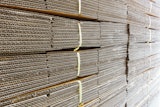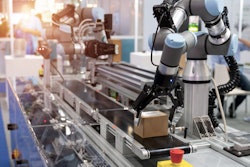This article originally ran in the May 2012 issue of Food Manufacturing, a Manufacturing.net sister publication.
Candy company increases quality and conserves energy with updated confectionery production lines.
Rudi Jahnke Süßwaren e.K. is one of the rare exceptions in the world of confectioners: a traditional family business that has remained under family control since its inception. Founded in the Hamburg suburb of Altona in 1980 by Rudi Jahnke -- assisted at the time by his wife Anna and son Heinz Peter -- Jahnke specializes in licorice sweets such as salmiak-salt licorice candies and licorice cross squares. The company also manufactures traditional sweets such as May Leaves with woodruff flavor, and lemon and raspberry drops.
Headquartered in Kaltenkirchen, Germany since 1989, the company has been run by Rudi Jahnke’s son, Heinz, for over 25 years. Jahnke’s confections continue to be produced at its sole manufacturing facility according to traditional recipes and with the help of the latest production methods.
The German confectioner first decided to utilize Bosch machines twenty-two years ago. Recently, for its manufacturing process, handling more than 1,000 kilograms of candy per shift and day, Jahnke began to search for ways to conserve both energy and water to reduce production costs. By providing Jahnke with a new dosing and mixing unit, Bosch helped the company meet this challenge.
Until the changeover, Jahnke used an electronic dosing and mixing unit to whisk sugar, glucose and water together, a mixture that was then added to the pressure dissolver. Though the machine delivered consistent, high-quality product, Jahnke faced ever-increasing energy and water costs and needed technology that demanded less of both components. The solution they chose offered a continuous dosing and mixing unit, which makes it possible to produce a crystal-free sugar-glucose syrup-solution without the addition of water as well as realize significant savings in energy consumption.
Ress emphasized, “The new Bosch technology could enable the establishment of a second production line without the need to replace the original boiler with a bigger one.” Heinz Jahnke, Company Director, added, ”Due to the new system, we can save two-thirds of the energy as well as increase the quality of our products which, with regard to our customers’ growing demands, becomes a very important criteria.”
Due to the energy and water savings, the conversion to Bosch machines turned out to be worthwhile. Ress confirmed, “The development of these machines is trend-setting within the confectionery industry, because it gives us manufacturers the possibility to produce more efficiently and sustainably.”























